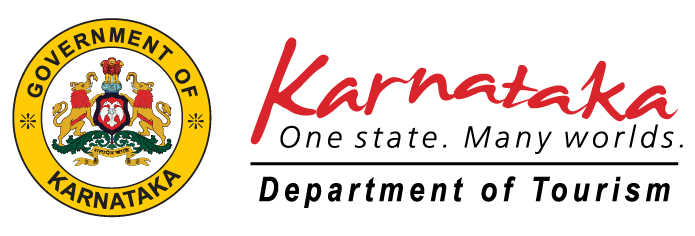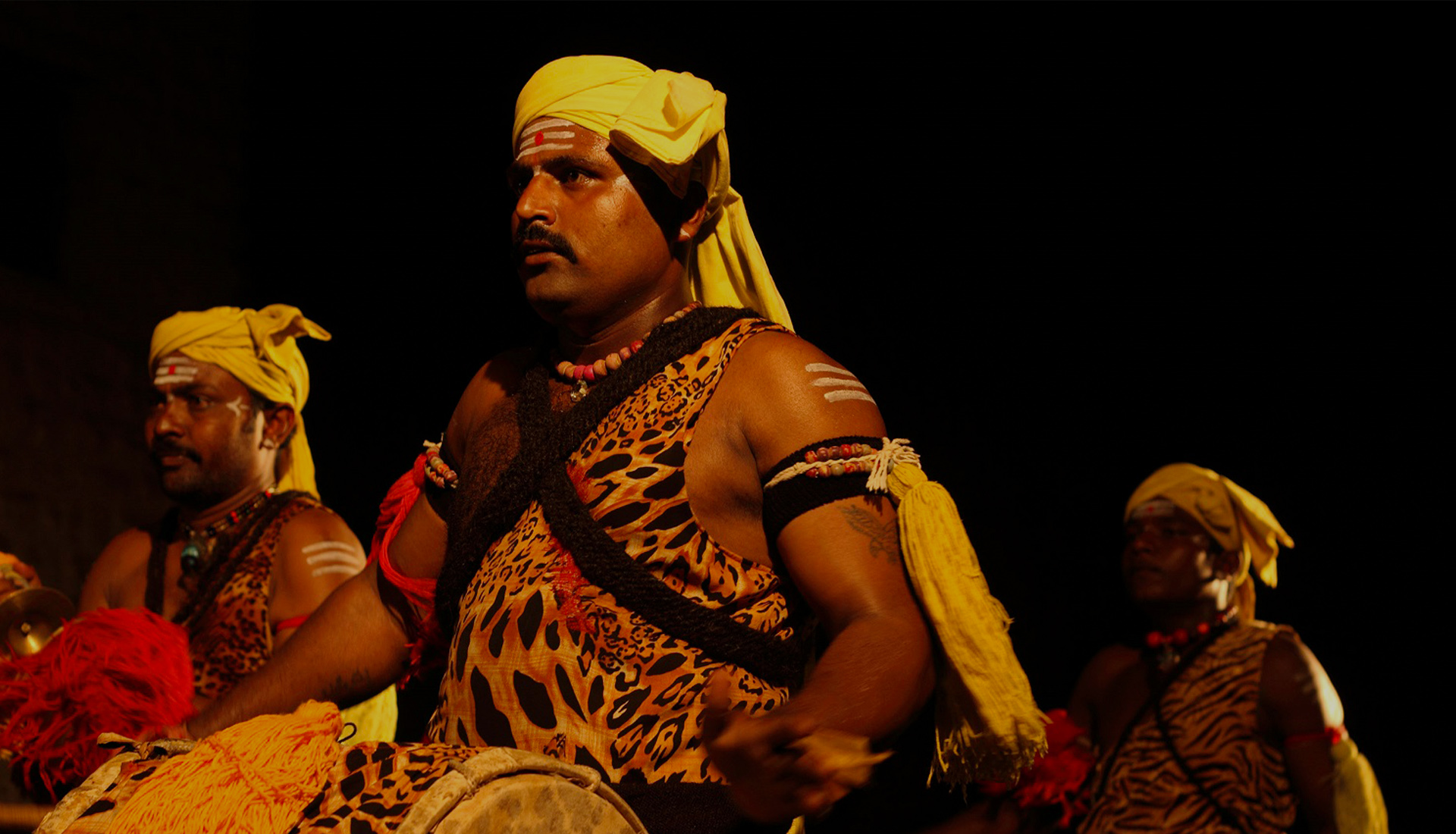Dollu Kunitha is a traditional dance form in Karnataka. Dollu Kunithâ is high on energy and performed all over the state during major festivals and celebrations. It is a popular folk dance associated with the worship of Sree Beeralingeshwara who is considered as a form of Lord Shiva, originated in the rituals of the Kuruba Gowda community of North Karnataka.
History:
Dollu or drum is associated with Lord Shiva, known for his aggression and fierce dance (bhairava tandava dance) when upset. Shiva is believed to have made a drum from the skin of demons he killed. Shiva’s main devotees, from Kuruba community, celebrate the killing of demons by beating the drums.
The Troupe:
Dollu Kunithâ is performed in a group of 10-12 drummers. Both men and women can be part of the Dollu Kunithâ team.
The Performance:
Dollu Kunitha performance never goes unnoticed, due to high decibel, high energy performance put forward by the troupe. Drum dance is usually performed in a circular or semi-circular fashion with drum holders beating their drums in rhythm, along with singing and accompanying music.
Dollu Kunitha performance demands lots of stamina and endurance to be able to hold the heavy drum for hours and dance with it. Because of this only well built men used to take part in Dollu Kunitha. Of late lighter, smaller size drums are also available, which are suitable for everyone. Villagers and spectators often jump in to dance along with the Dollu Kunithâ troupe and indulge themselves.
Where to witness Dollu Kunitha:
Dollu Kunithâ is an integral part of various temple festivals, cultural events and celebrations. Karaga festival procession, Mysuru Dasara, Jambu Savari, Bengaluru Habba, various temple car festivals often include Dollu Kunithâ performances.
Also, Check about Kannada Rajyotsava



